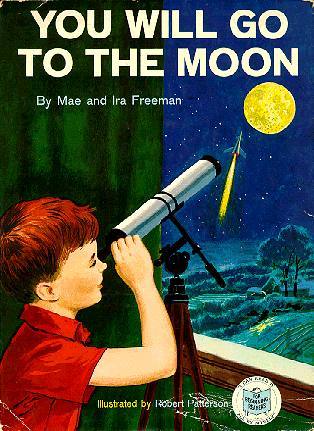space
Space Daily is a great place to learn about the latest in things extraterrestrial. And also, high-tech developments and Science in general, from nanobots to nematodes.
The Encyclopaedia Astronautica is by far the most comprehensive site on space history that's on the Web. Want to know about Russian Air-breathing boosters? It's there. The names of the Chinese Astronauts (Taikonauts)? They're there. Every space mission ever flown, plus all those that were planned but never got off the ground.
The Co-Operative Research Centre for Satellite Systems, known by its jaw-breaking acronym (CRCSS), pronounced "Kirks" as in Captain, in the nearest thing Australia has to NASA. As the name says, it's a co-operative research centre, a fairly loose grouping, with parts from industry and academe. If you want to see how space can be done "on a shoestring", visit the site.
The Space Review is a relatively recent site, which unlike Space Daily (which reports daily), has articles "in depth" on various space topics. Updated weekly.
Rick Fleeter's site is authored by a guy who's been involved in the development of literally dozens of satellites, and heavily involved in about 20. His book, "Logic of Microspace" is the Bible for developers of small satellites. He's also possessed of a dry wit.
space (alt)

 These are links to The Space Age that never really was. When I was a young boy, I read a "look and Learn" book called "You will Go To The Moon". And I believed it. The Radio was playing The Beatles new song "She Loves You", but I preferred the Tornados' Telstar (3.1 MB mp3). Just listen to it - the optimism, the exuberance of the time bursts from every chord. We'd had the invention of Fire, the Wheel, the Bronze Age, the Iron Age, the Age of Steam, and the Age of Electricity. We were now entering the Space Age, and the sky was no longer the limit. "Live" Television from the USA no longer had the 8-hour delay while the tapes were being flown across the Atlantic. I didn't care that the real Telstar actually sounded more like this (434 KB wav). In 1968, I saw Kubrick's "2001 : A Space Odyssey", which was an attempt by one of the 20th Century's greatest directors, and one of the 20th Century's greatest "Hard" Science Fiction writers, to predict what might come about at the turn of the century.
These are links to The Space Age that never really was. When I was a young boy, I read a "look and Learn" book called "You will Go To The Moon". And I believed it. The Radio was playing The Beatles new song "She Loves You", but I preferred the Tornados' Telstar (3.1 MB mp3). Just listen to it - the optimism, the exuberance of the time bursts from every chord. We'd had the invention of Fire, the Wheel, the Bronze Age, the Iron Age, the Age of Steam, and the Age of Electricity. We were now entering the Space Age, and the sky was no longer the limit. "Live" Television from the USA no longer had the 8-hour delay while the tapes were being flown across the Atlantic. I didn't care that the real Telstar actually sounded more like this (434 KB wav). In 1968, I saw Kubrick's "2001 : A Space Odyssey", which was an attempt by one of the 20th Century's greatest directors, and one of the 20th Century's greatest "Hard" Science Fiction writers, to predict what might come about at the turn of the century.
Ah me. I'll blog about how and why the wheels fell off later. Suffice to say, they did.
But there are two sites that show both a dark and a light side to alternate realities where they didn't. First "Man Conquers Space". Yes, the sexist title is deliberate, because it's about what might have happened if the All-American Can-Do attitude of the 50s had persisted, grown and flourished into the 60s and 70s, out in Space. Just as reality was worse than the most pessimistic of pundits predicted after 1968, this is the obverse - if the most optimistic predictions of the 50's had come true. All-American crewcut straightarrows leave their All-American ex-bobbysoxer wives-and-mothers back home, and Boldy Go where no Man has gone before. (Which if anyone remembers, was the original wording used in "Star Trek" - the Old Generation.) Then there's the more grittily realistic "Deep Cold", which describes the 60's Cold War missions (of both sides) that never were, but could easily have been. In one clip, the "Manned Orbitting Laboratory" conducts a deeply classified spysat mission over the Soviet Union to the tune of "Bad Moon Rising". It's the 60's Cold War to a Tee. So much as I deplore the demise of the Space Age, I'd have to say that Society (at least) in many ways has gotten vastly better. In 1960, the USA still had the "Jim Crow" laws in many places, and as for Australia, we had the blatantly racist "White Australia" policy, supported in great part by the Left.
More on Space later.

No comments:
Post a Comment